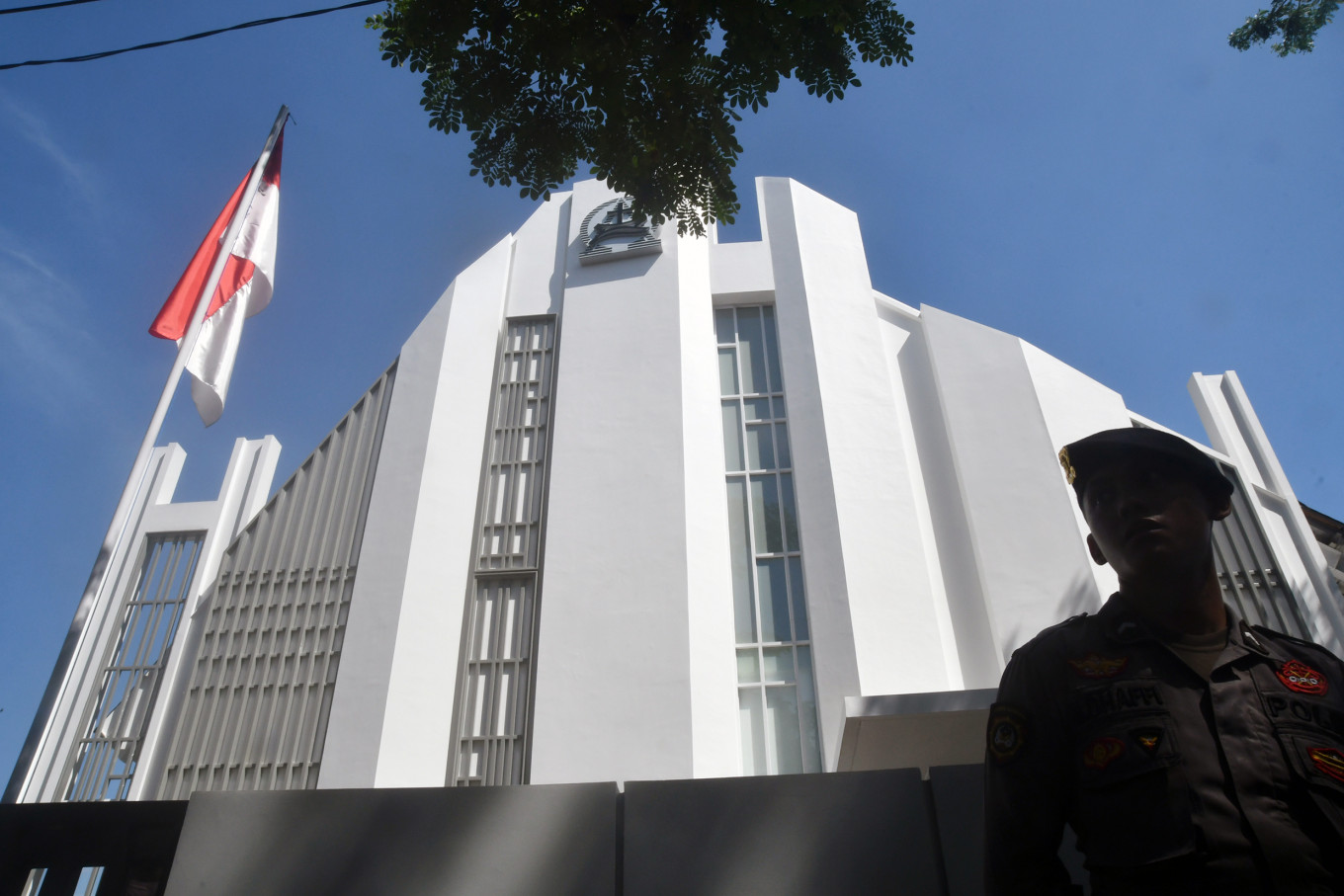Popular Reads
Top Results
Can't find what you're looking for?
View all search resultsPopular Reads
Top Results
Can't find what you're looking for?
View all search resultsCalls grow to protect right to religious freedom
The PGI has become the latest to add its voice to the growing calls for the government to step up its efforts to protect religious freedom, especially in anticipation of increased tensions in the lead-up to next year’s elections.
Change text size
Gift Premium Articles
to Anyone
A
o:p>As intolerant mobs constantly test social cohesiveness through a flurry of attempts to disband churchgoers across the country, fresh calls have been made to protect religious freedom amid fears that tensions during a political year could exacerbate interfaith conflicts.
After three separate attempts targeting Christians over a span of two weeks, the Indonesian Communion of Churches (PGI) has become the latest group to demand that the state protect the right to worship, which is enshrined in the 1945 Constitution.
PGI executive secretary for justice and peace Henrek Lokra strongly condemned the “forceful and provocative dispersal of religious activities” against several congregations in Sumatra and Java that all “happened around the same time” last month.
The Rose of Sharon Church (GMS) in Binjai, North Sumatra, was the target of protests on May 19 by the local Muslim community, which believed that it did not have the permit to operate as a place of worship. A GMS pastor told local media that the group had a permit to conduct religious activities at a temporary place of worship, but the protesters had ignored this.
A similar incident occurred on the same day against the Indonesian Bethel Church (GBI) Gihon in Pekanbaru, Riau.
On May 28, the GBI in West Bandung, West Java, was forced to stop its activities when it was also accused of not having a permit to operate as a house of worship.
All three churches follow the charismatic Christian movement, a form of Protestantism, which is a minority religion in the world’s largest Muslim-majority nation.
Henrek of the PGI called on the government to reprimand the leaders of the Binjai, Pekanbaru and West Bandung administrations over the incidents, as well as to issue temporary permits for the three churches in line with a 2006 joint ministerial regulation.
“As the protectors of communities, local administrations should be [responsible] for fostering interfaith harmony, including by facilitating the establishment of houses of worship,” Henrek said in a statement released on Tuesday.
The state and law enforcers must also take firm action against the perpetrators who sought to disperse the churchgoers and prevent similar incidents from recurring.
He added that if the government fail to act, it could worsen the sense of distrust and potentially exacerbate religious conflict ahead of next year’s elections.
“Regrettably, these kinds of incidents are still happening even after the President clearly criticized the ban on constructing a [non Muslim] house of worship,” Henrek said.
He was referring to President Joko “Jokowi” Widodo’s call to regional leaders in January to uphold the constitutionally guaranteed freedoms of worship and of religion.
The head of the National Commission on Human Rights (Komnas HAM), Atnike Nova Sigiro, responded to the incidents, saying that they revealed how much work the government still had to do to protect religious freedom.
As of April, Komnas HAM had received eight complaints regarding religious intolerance, religious discrimination and other related violations. In comparison, the rights body had recorded 23 such complaints in 2022.
“The central government and local administrations have the responsibility to protect the right to freedom of religion for everyone and for every religious group," Atnike told The Jakarta Post on Wednesday.
She added that these acts of intolerance against a particular religion could not be handled solely through legal avenues, stressing that it also required efforts to foster tolerance and respect for human rights in society.
Minority religious groups across the country face obstacles to exercising their right to freedom of religion, with many unable to build houses of worship due to the prevailing regulations.
The 2006 joint ministerial regulation on places of worship requires the approval of local residents to build a house of worship in a particular area. This has primarily caused difficulties for minority groups to obtain building permits, as well as stoked religious discrimination.
The latest incident involves the Indonesian Christian Church (GKI) Yasmin in Bogor, West Java, which was finally able to inaugurate its new church in April after a 15-year legal battle, buoyed by a 2010 Supreme Court ruling that favored the church.
In 2011, however, the Bogor administration revoked the church’s building permit.
The chapter on Indonesia in the 2022 Report on International Religious Freedom by the United States Department of State found that the government and the National Police sometimes failed to prevent intolerant groups from infringing on the religious freedom of others. These infringements included intimidation, destroying houses of worship or dispersing religious activities.
The report, submitted annually to the US Congress for consideration, compiled and analyzed data from government officials, religious groups, nongovernmental organizations, journalists, human rights monitors and academics, as well as through media monitoring.
The report also cited rights watchdog Setara Institute’s 2022 report, which recorded 333 actions that infringed on religious freedom that year.
In its breakdown, Setara found that the majority of perpetrators in 175 incidents were non-state actors. Meanwhile, it found that local administrations, police and state educational institutions were the perpetrators in the remaining 158 incidents, which included opposition to the construction of houses of worship, destruction of houses of worship, bans against religious activities and blasphemy allegations.
In comparison, the watchdog recorded 318 actions perpetrated by non-state actors in 2021.










